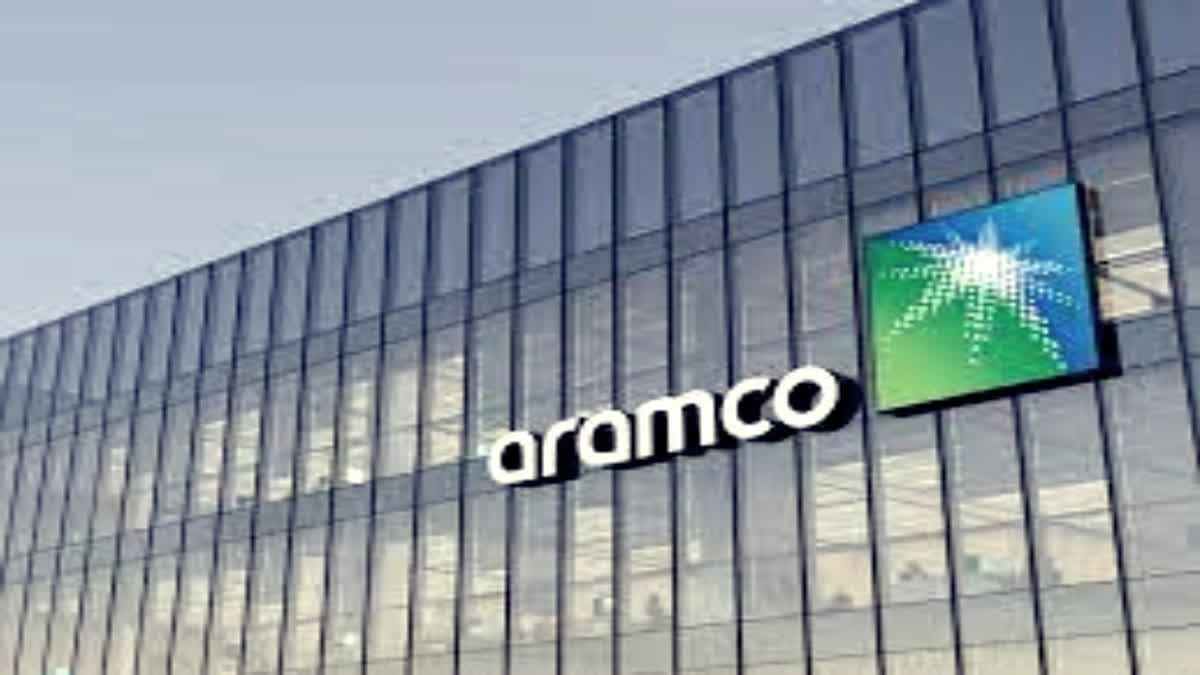Dubai: Saudi state-run oil giant Aramco said Monday that it made $30 billion in profit in the second quarter, a nearly 40% decline from the same period the previous year that it attributed to lower oil prices.
Total sales stood at just over 400 billion riyals (about $106 billion), down from 562 billion riyals ($150 billion in the second quarter of 2022. In an earnings report filed with the Saudi stock exchange, Aramco said the decrease mainly reflected the impact of lower crude oil prices and weakening refining and chemicals margins.
The company reported net income of 112.8 billion Saudi riyals ($30 billion) compared to 181.6 billion riyals ($48 billion) in the second quarter of 2022, a decline of 37.8 Per cent. Aramco nevertheless raised its dividend paid out to investors to 110.18 billion riyals ($29.38 billion), compared to $18.8 billion in the second quarter of 2022. The performance-based dividend is partly based on the company's record earnings last year, it said.
Our strong results reflect our resilience and ability to adapt through market cycles," Aramco CEO Amin Nasser said in a statement accompanying the report. Last week, Fortune magazine ranked Aramco, officially known as the Saudi Arabian Oil Co, the second biggest company in the world by revenue, behind only Walmart and ahead of Amazon and Apple. The ranking came after the oil company reported a profit of over $160 billion in 2022, the largest ever recorded by a publicly traded firm.
Those kinds of earnings will come under heightened scrutiny later this year when the United Arab Emirates, another major oil producer, hosts annual UN climate talks aimed at getting the world to slash emissions and reduce its reliance on fossil fuels. Aramco benefited from a spike in oil prices last year caused by Russia's invasion of Ukraine. Internationally traded oil peaked at over $120 a barrel in June 2022 before settling in a range of $75 to $85 for much of the past year.
Saudi Arabia has repeatedly cut its oil production in recent months and pressed fellow OPEC members to do the same in an attempt to push up prices in the face of weaker demand from China and rising interest rates aimed at combatting inflation. The kingdom needs high oil prices to fund Vision 2030, a costly and wide-ranging plan to overhaul its economy and transform itself into a regional hub for business and tourism. The plans include several so-called gigaprojects, including the construction of a futuristic $500 billion city on the Red Sea coast.
Saudi Arabia is also investing billions of dollars in tourism, entertainment and sports, including on a controversial merger with the PGA Tour and the recruitment of some of soccer's biggest stars to play for local clubs. Activists accuse the country of trying to sportswash a human rights record marred by its involvement in the war in neighbouring Yemen, a heavy crackdown on dissent and the 2018 killing of Jamal Khashoggi, a Washington Post columnist and government critic.
The International Monetary Fund estimates that Saudi Arabia needs an oil price of around $80 a barrel to avoid running a deficit. Benchmark US crude oil for September delivery rose $1.27 to $82.82 a barrel Friday. Brent crude for October delivery rose $1.10 to $86.24 a barrel. Aramco raised a record $29.4 billion through an initial 2019 public offering in which it sold a tiny sliver of less than 2% of the company to investors.
Crown Prince Mohammed bin Salman, Saudi Arabia's day-to-day ruler and the architect of Vision 2030, has transferred 8% of Aramco to the kingdom's $700 billion sovereign wealth fund over the past two years to help shore it up as it funds the massive infrastructure projects. (AP)



